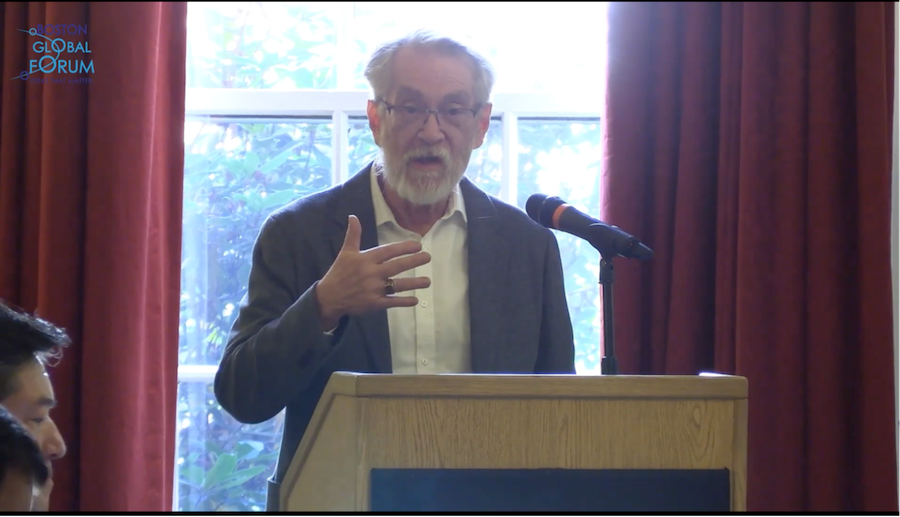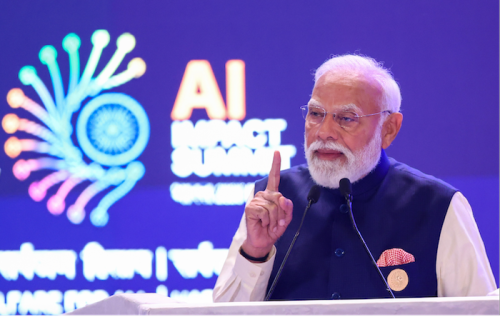AIWS Digital Asset Standards Initiative (AIWS-DASI)
Harvard University – Loeb House, November 4, 2025
1. AI Must Extend Law and Ethics — Not Just Maximize Productivity
In his remarks, Professor Alex “Sandy” Pentland emphasized that AI development should not focus solely on efficiency or replacing human labor. Instead, AI must:
- Extend and reinforce legal and ethical principles
- Improve overall societal performance, not just economic output
- Support human coordination and trust
This aligns closely with the foundations of AIWS and its mission of building ethical, human-centered AI governance.
2. AI as a Mediator: Enhancing Human Collaboration
Pentland presented an AI system his team built that is already used by cities and schools. Its core functions:
- Listens to group conversations
- Summarizes perspectives fairly
- Highlights alignment and differences
- Helps people find common ground
- Does not contribute opinions or facts, only facilitates
The results are remarkable:
- Groups reach agreement twice as effectively
- Discussions become more inclusive, faster, and less conflict-driven
This demonstrates that AI can empower human dialogue, not replace it — reinforcing AIWS principles of AI as a “trusted assistant” to society.
3. Real Impact: Washington D.C. Participation Project
In Washington D.C., the team used AI mediation to involve residents who normally lack time to engage in civic processes. The findings surprised city officials:
Citizens overwhelmingly said they want:
A Personal AI Agent to Navigate Government Complexity
Such an AI would help citizens:
- Understand rules and procedures
- Access services fairly
- Engage government on equal footing
This insight aligns with AIWS Government 24/7, where AI helps citizens—not bureaucracies—be more empowered.
4. The Future: AI with a Legal “Duty of Loyalty”
Pentland underlined a critical principle:
Personal AI must have a fiduciary duty to its user.
This means:
- AI must serve your interests, not corporate or government interests
- AI must respect privacy, autonomy, and ethics
- AI providers must be legally accountable
He is working with:
- Stanford Law School
- Consumer Reports
- Legal and policy bodies in California
to create industry-wide standards for legally loyal AI agents. This complements AIWS-DASI’s vision of trusted AI and ethical digital assets.
5. Open, Public Infrastructure for AI Empowerment
Pentland stressed:
- All code and research are open-source
- The system is provided as a public service
- AI infrastructure must be transparent and accessible
This directly supports AIWS-DASI’s commitment to openness, integrity, and public benefit.
6. Book Shared Wisdom — A Vision for AI and Society
His new book, released November 11, explores:
- AI-enabled collective intelligence
- Implications for governance, bureaucracy, and law
- How AI can strengthen democratic processes
This thinking aligns deeply with BGF and AIWS’s mission to build a civilization of shared wisdom, peace, and human dignity in the AI Age.
Overall Message
In his remarks at the AIWS-DASI Conference at Harvard Loeb House, Alex Pentland presented a compelling vision:
AI should be a mediator, a loyal representative, and an enabler of societal harmony — not a force for control or replacement.
His approach reinforces the AIWS belief that:
- AI must serve human values
- Trust and law must guide digital transformation
- AI can strengthen democracy, collaboration, and human creativity
These ideas provide a powerful intellectual foundation for AIWS-DASI and the broader mission of the Boston Global Forum.
Please see Sandy’s video here:











